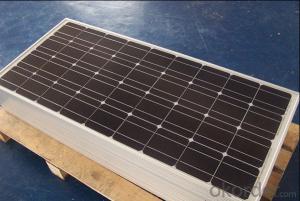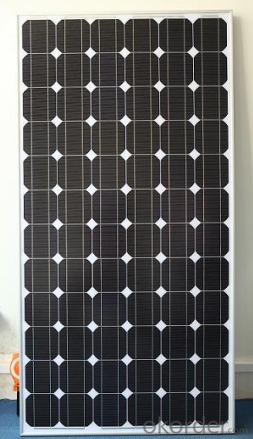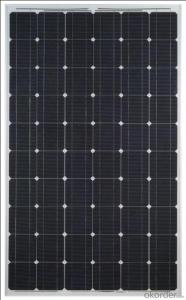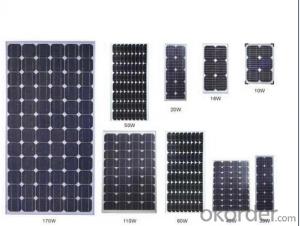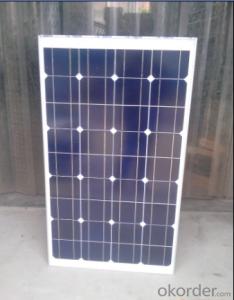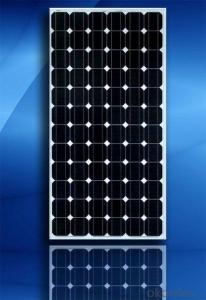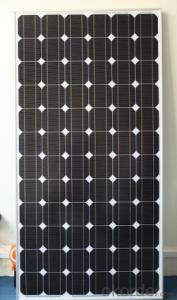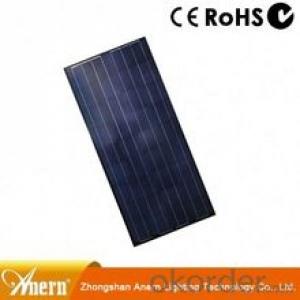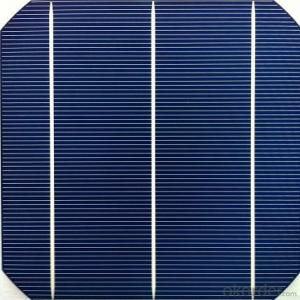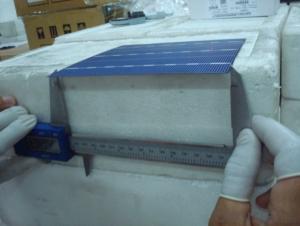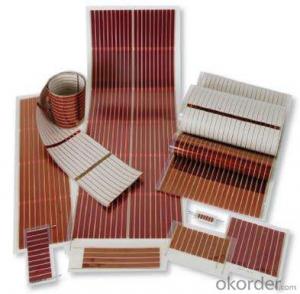Folding USB Solar Cells 300W Monocrystalline Solar Cell Price with 25 Year Warranty CNBM
- Loading Port:
- Qingdao
- Payment Terms:
- TT OR LC
- Min Order Qty:
- 10 set
- Supply Capability:
- 300000 set/month
OKorder Service Pledge
OKorder Financial Service
You Might Also Like
300W solar Panel
Quick Details
| Place of Origin: | China (Mainland) | Brand Name: | cnbm | Model Number: | PS-M672300 |
| Material: | Monocrystalline Silicon | Size: | 1956*990*40mm | Number of Cells: | 72 pieces |
| Max. Power: | 300W | Weight: | 23kg monocrystalline solar panel | Product warranty: | 25 years |
| Maximum system voltage: | 1000VDC | Tolerance: | 0/+3% | Cable length: | 1.2m |
| Connector: | MC4 compatible connector | Junction box: | IP65 Rated | Frame: | Anodized aluminium alloy |
| Front Cover: | 3.2mm thick.low iron tempered glass | Cell type: | Monocrystalline solar panel cells 156mm |
Packaging & Delivery
| Packaging Detail: | Monocrystalline solar panel packing information 28pcs. / box 20pcs. / pallet 560 pcs. / 40ft 602 pcs. / 40ft (H) |
| Delivery Detail: | in one week |
Specifications
1. Best monocrystalline solar cell price
2. 300W Monocrystalline solar panel with best price
3. 25 years warranty
Product Name
High Efficiency monocrystalline solar cell price with 25 year warranty
Product Description
1.Solar Panel Descprition
PS-M672 Series solar panel is connected in series by 70 pieces of 156mm×156mm Mono Crystalline silicon cells. Solar panel performance is produced according to IEC61215, IEC61730 international standard.
2.Solar Panel Characteristics
1)Manufactured according to international quality and Environment Management
System (ISO9001, ISO14001)
2)High efficiency crystalline silicon solar cells
3)High transmission Iow iron tempered glass, strong mechanical resistance
4)Anti-ageing EVA and excellent anti-climate back sheet
5)Anodized aluminum frame improves load resistance capabilities for heavy wind loads.
6)Standard waterproof junction box
7)High endurance to different weather
8)Good and friendly package with less transportation and storage space.
3.Solar Panel Warranty
1)10 years limited manufacturing warranty
2)10 years for 90% of warranted minimum power
3)25 years for 80% of warranted minimum power
4.Solar Panel Electric Characteristics
| Cell Type | Mono Solar Cell 156mm*156mm | |||
| Item | PS-M672285 | PS-M672290 | PS-M672295 | PS-M672300 |
| Power | 285W | 290W | 295W | 300W |
| Voc(V) | 44.8 | 45 | 45.3 | 345.5 |
| Isc(I) | 8.6 | 8.75 | 8.85 | 8.95 |
| Vm(V) | 36.2 | 36.3 | 36.5 | 36.6 |
| Im(I) | 7.87 | 7.99 | 8.08 | 8.20 |
| Cell Efficiency | 17.08 | 17.38 | 17.68 | 17.98 |
| Module Efficiency | 14.72 | 14.98 | 15.23 | 15.49 |
| Fuse | 15A | |||
| Max System Voltage | 1000VDC | |||
| Cell Number | 72cells | |||
| Tolerance | 0/+3% | |||
| Module Size | 1956*990*40(mm) | |||
| Weight | 23KGS | |||
| Cable Length | 0.9m | |||
| Connector | MC4 or compatible connector | |||
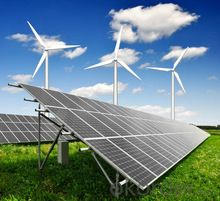
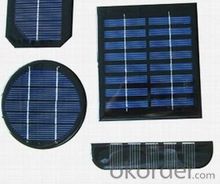
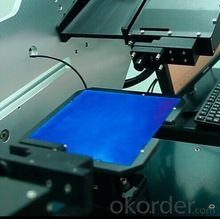
Global Projects
20MW Solar Power Plant in China
130KW Solar Power Plant in Japan
700KW Solar Power Plant in Japan

- Q: How do solar cells perform in areas with high levels of humidity?
- Solar cells generally perform slightly less efficiently in areas with high levels of humidity. The moisture in the air can reduce the amount of sunlight reaching the cells and increase the chances of dust and dirt accumulation on the surface, both of which can hinder their performance. However, technological advancements have been made to mitigate these effects, and solar cells can still generate significant electricity even in humid regions.
- Q: How do solar cells perform in areas with high levels of air pollutants?
- Solar cells can be negatively affected by high levels of air pollutants. The pollutants, such as smog and particulate matter, can reduce the amount of sunlight reaching the solar cells and lead to a decrease in their efficiency. Additionally, pollutants can accumulate on the surface of the solar panels, further reducing their performance. Regular cleaning and maintenance of the solar cells can mitigate some of these effects, but in areas with persistently high levels of air pollutants, the overall performance of solar cells may be compromised.
- Q: PV: the battery to the battery charge problem
- I use the BUCK circuit, controlled by the microcontroller, the circuit is not too difficult, are ready, but the understanding of BUCK problems. See a lot of books are written on the battery can be constant pressure charging, feeling can not understand. Now I think they are probably wrong, the voltage across the battery in the BUCK circuit is out of control.
- Q: How do solar cells perform in areas with high levels of pollen allergies?
- Solar cells can generally perform well in areas with high levels of pollen allergies. While the presence of pollen might lead to some dust accumulation on the surface of the solar panels, it does not significantly impact their performance. Regular cleaning and maintenance can help ensure optimal efficiency of the solar cells, even in areas with high pollen levels.
- Q: Where can I find more information about the work process of solar cells
- The working process of solar cell is a bit complicated to describle.
- Q: Can solar cells be used for off-grid living?
- Yes, solar cells can definitely be used for off-grid living. They provide a clean and reliable source of renewable energy, allowing individuals to generate their own electricity without relying on the traditional power grid. Solar cells can be used to power various appliances, lighting systems, and even charge batteries for nighttime usage. This makes solar energy an ideal solution for those living in remote areas or seeking a sustainable and independent lifestyle.
- Q: Can solar cells be used in harsh climates?
- Yes, solar cells can be used in harsh climates. While extreme temperatures, snow, and dust can potentially affect the efficiency and performance of solar cells, advancements in technology and design have made them more resilient. Specialized coatings, materials, and mounting systems are employed to protect solar cells from harsh weather conditions. In fact, solar panels are increasingly being used in various extreme climates around the world, including deserts and polar regions, proving their adaptability and effectiveness even in challenging environments.
- Q: Can solar cells be used in remote sensing applications?
- Yes, solar cells can be used in remote sensing applications. Solar cells can generate electricity from sunlight, which can be used to power sensors, data loggers, and communication devices in remote sensing systems. This allows for continuous and self-sustained operation of these systems in remote and inaccessible areas where traditional power sources are unavailable.
- Q: What is the impact of solar cells on reducing air pollution from power generation?
- Solar cells have a significant impact on reducing air pollution from power generation. By harnessing energy from the sun, solar cells produce electricity without emitting harmful pollutants such as carbon dioxide, sulfur dioxide, or nitrogen oxides. This clean and sustainable energy source helps to mitigate the negative effects of traditional fossil fuel-based power generation on air quality, thus contributing to a healthier environment and reducing the overall carbon footprint.
- Q: How do solar cells perform in areas with high levels of sandstorms?
- Solar cells may not perform optimally in areas with high levels of sandstorms. The sand particles can accumulate on the surface of the solar panels, reducing their efficiency by blocking sunlight. Additionally, the abrasive nature of sand can cause damage to the panels, leading to decreased performance and potential maintenance issues. Regular cleaning and protective measures may be necessary to maintain the effectiveness of solar cells in such environments.
Send your message to us
Folding USB Solar Cells 300W Monocrystalline Solar Cell Price with 25 Year Warranty CNBM
- Loading Port:
- Qingdao
- Payment Terms:
- TT OR LC
- Min Order Qty:
- 10 set
- Supply Capability:
- 300000 set/month
OKorder Service Pledge
OKorder Financial Service
Similar products
Hot products
Hot Searches
Related keywords
